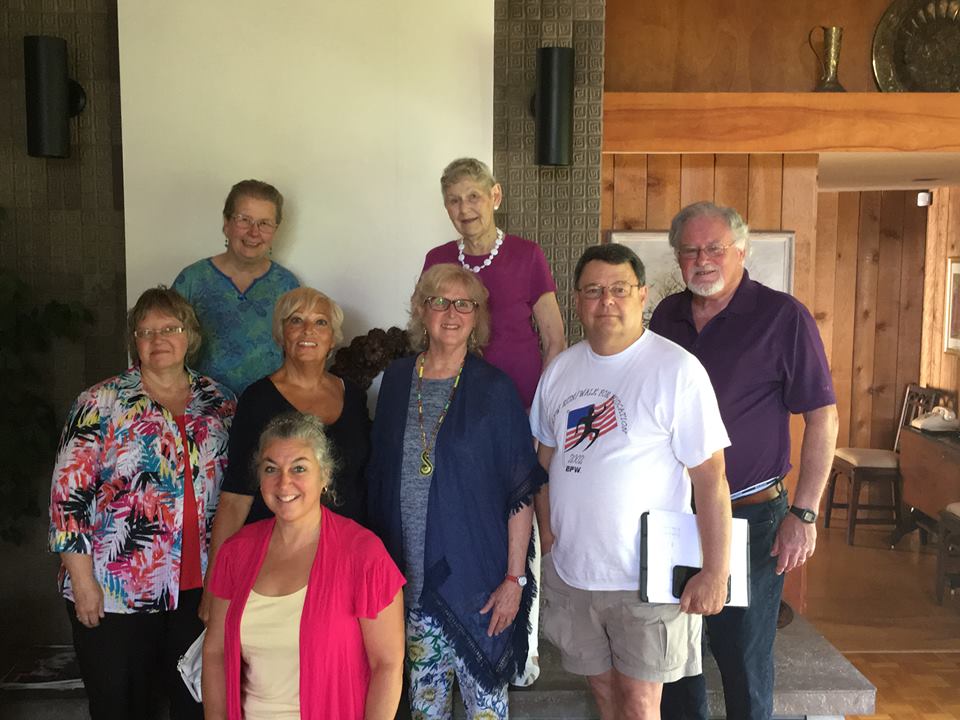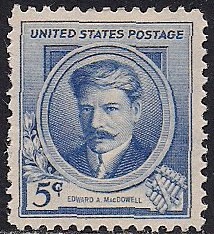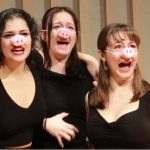Say Goodbye to the MacDowell Club
Concert Sunday will be the last in its 110-year history.
The MacDowell Club of Milwaukee, a 110-year-old civic institution will celebrate its accomplishments with a concert this Sunday afternoon at the Villa Terrace, then retire into history.
MacDowell Clubs have contributed toward the growth of capacity and commitment to classical music in U.S. history. This kind of commitment was a challenge for a still new country. As John Adams, America’s second president, wrote: “I must study politics and war that my sons may have liberty to study mathematics and philosophy. My sons ought to study mathematics and philosophy, geography, natural history, naval architecture, navigation, commerce, and agriculture, in order to give their children a right to study painting, poetry, music, architecture, statuary, tapestry and porcelain.”
With the ending of the 19th century, artists in the United States were exploring the question of an American culture, with an identity separate from the centers of culture in Europe. Classical composition centered around romantic traditions in piano music, material often written for home consumption. One outstanding composer, Edward Alexander MacDowell (1860–1908) achieved recognition for late Romantic era works such as his second piano concerto and his piano suites.the Woodland Sketches, Sea Pieces, and New England Idylls.
MacDowell and his wife championed the development of young composers and other artists in the United States. They established the MacDowell Colony, a multidisciplinary retreat for artists in Peterborough, New Hampshire. After Edward’s death, Marian MacDowell led the Edward MacDowell Association and Colony for more than 25 years, strengthening its initial endowment by resuming her piano performances and creating a wide circle of donors, especially among women’s clubs and musical sororities, not to mention around 400 MacDowell music clubs.
The mission of The MacDowell Colony “to nurture the arts by offering creative individuals of the highest talent an inspiring environment in which they can produce enduring works of the imagination” continues. Over the years, an estimated 8,300 artists from many artistic fields have been supported in residence.
A typical small club gathering would feature a privately held meeting with invited talks, piano and vocal solos and duets of local performers. Bigger clubs were able to organize academic lectures, concerts, recitals (by Marian MacDowell or other well-known national performers) and art exhibitions open to the general public, as well as private dinners, pageants and balls.
By 2008, only 15 MacDowell Clubs continued to operate including the MacDowell Club of Milwaukee, founded in 1909.
For many years the Milwaukee MacDowell Club flourished as an important resource in the greater Milwaukee area, providing performance opportunities for serious, talented musicians. At one time, it listed almost 500 active and student members. Within 50 years of its founding, the club had The MacDowell Chorus, an all-woman orchestra and a student section, all very active on Milwaukee’s musical scene.
Notable performances by the Chorus included Menotti’s “Old Maid and the Thief” and “The Telephone”. The MacDowell Chorus performed Debussy’s Three Nocturnes at the Pabst Theater with the Chicago Symphony Orchestra. The MacDowell Club Orchestra gave concerts in the former Layton Art Gallery, made several tours and, in 1924, presented a concert in New York City. It is believed this group presented the American premiere of Saint-Saens‘ “Carnival of the Animals”. Study groups were formed in 1937 for voice, strings, and piano ensembles, and elaborate productions called the MacDowell Club Follies closed each season.
Subsequently, the club held concerts introducing Charles Ives to Milwaukee and commissioning an orchestra work by Louise Talma nominated for a Pulitzer Prize. Several times, the club has performed works by local composer John Downey, commissioning a piano trio. More recently, a work by Michael Torke, a Wauwatosa native often performed by Present Music was commissioned for the club’s centennial year. Edward MacDowell’s work was also often recognized.
A primary mission to “provide performing opportunities for professional and amateur musicians, and acquaint the general public with the number and excellence of local artists” guided the annual programming. Over recent decades the Milwaukee MacDowell Club has continued to be a platform for musicians trained professionally, but not performing professionally. A recent roster can be found online. More historical details can be found on the club’s website.
The contribution of the Milwaukee MacDowell Club was critical at a point that symphony music depended upon visits to Milwaukee from the Chicago Symphony Orchestra and chamber music was largely represented by guest artists sponsored by the Artists at the Pabst Series. But the growth of professional performance groups and increased local concert opportunities reduced the demand for volunteer performances. And opportunities for volunteer performers also grew. Training and performance opportunities for youth in Milwaukee are especially strong.
In the face of expanding options for performers in Milwaukee, the Milwaukee MacDowell Society has decided to disband. They will give their final concert on Sunday.
The group focused increasingly upon providing funding to young musicians to support their training. The club has set a final target of $50,000 toward a scholarship legacy to be managed by the Greater Milwaukee Foundation.
The final concert will be offered at 5:00 p.m., Sunday, September 22 at the Villa Terrace at 2220 N. Terrace Ave. on Milwaukee’s East Side. As has been the tradition, the concert will be free. Performing members who have participated often in past performances will offer a range of music for piano, voice, flute, clarinet and small ensemble. The featured composers, many American, include Barber, Bonds (Spiritual arr.), Canteloube, Chopin, Copland, Gershwin, Ives, Koelling, Kovacs, Liszt, MacDowell and Machado.
Preview
-
A Sacred Choir, 70 Voices Strong
 Dec 14th, 2025 by Martha Brown
Dec 14th, 2025 by Martha Brown
-
Prometheus Trio Goes Bohemian
 Dec 3rd, 2025 by Martha Brown
Dec 3rd, 2025 by Martha Brown
-
Present Music Offers New Choral Works
 Nov 20th, 2025 by Michael Barndt
Nov 20th, 2025 by Michael Barndt





















